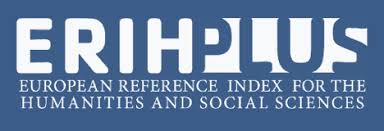№2, 2025
The dynamic fields of immunology and pharmacology demand innovative educational strategies to ensure that future healthcare professionals are equipped with up-to-date knowledge and skills. In the context of digital transformation, the integration of digital health technologies offers unprecedented opportunities to enhance learning experiences. This study explores the development and implementation of digital health tools in immunology and pharmacology education, focusing on their role in improving conceptual understanding, clinical decision-making skills, and learner engagement. Pilot programs integrating virtual laboratories, AI-driven case studies, and real-time patient data simulations were conducted across undergraduate medical courses. Preliminary results indicate significant improvements in knowledge retention, critical thinking, and practical skills among students who utilized digital health-enhanced modules compared to those in traditional curricula. The findings suggest that strategic incorporation of digital health technologies can bridge the gap between theoretical knowledge and clinical practice (pp.12-17).
- Alguliyev R.M., Mammadova M.H. (2017). Essence, opportunities and scientific problems of e-medicine, Problems of Information Society. 8(2), 3–17. http://doi.org/10.25045/jpis.v08.i2.01
- Al-Jarf, R. (2010). Teaching medical terminology with mind-mapping software. Annals of “Dunărea de Jos” University of GALAŢI Fascicle XIII. Language and Literature. New Series, 29, 1-10.
- Betts, K., Delaney, B., Galoyan, T., & Lynch, W. (2021). Historical review of distance and online education from 1700s to 2021 in the United States: Instructional design and pivotal pedagogy in higher education. Journal of Online Learning Research and Practice, 8(1).
- Chataut, R., Nankya, M., & Akl, R. (2024). 6G networks and the AI revolution—Exploring technologies, applications, and emerging challenges. Sensors, 24(6), 1888.
- Chowdhury, P. N., Vaish, A., Puri, B., & Vaishya, R. (2024). Medical education technology: Past, present and future. Apollo Medicine, 21(4), 374-380.
- Coyne, L., Merritt, T. A., Parmentier, B. L., Sharpton, R. A., & Takemoto, J. K. (2019). The past, present, and future of virtual reality in pharmacy education. American journal of pharmaceutical education, 83(3), 7456.
- Dahm, M. R. (2011). Exploring perception and use of everyday language and medical terminology among international medical graduates in a medical ESP course in Australia. English for Specific Purposes, 30(3), 186-197. https://doi.org/10.1016/j.esp.2011.02.004
- Faggioni, T., Ferreira, N. C. D. S., Berçot, F. F., Bisaggio, R. D. C., & Alves, L. A. (2022). Virtual immunology: an educational software to encourage antigen-antibody interaction learning. Advances in Physiology Education, 46(1), 109-116.
- Fazal, N., & Graefen, B. (2024). CINEMIMMUNOLOGY: THE POWER OF MOVIES IN IMMUNOLOGY EDUCATION. European Journal of Public Health Studies, 8(1). http://dx.doi.org/10.46827/ejphs.v8i1.205
- Fazal, N., Qasmieh, S., & Graefen, B. (2023). Trick or Treat-Use of ChatGPT in Education. The Journal of Immunology. 210. 232.01-232.01. https://doi.org/10.4049/jimmunol.210.Supp.232.01
- Ferruz, N., & Höcker, B. (2022). Controllable protein design with language models. Nature Machine Intelligence, 4(6), 521-532. https://doi.org/10.1038/s42256-022-00499-z
- Graefen, B., & Fazal, N. (2023a). Innovation vs. tradition: Microbiology textbooks in the age of technology. European Journal of Alternative Education Studies, 8(3). http://dx.doi.org/10.46827/ejae.v8i3.4965
- Graefen, B., & Fazal, N. (2023b). Quality as a driver of progress: Tuberculosis care in Azerbaijan. Indian Journal of Tuberculosis. https://doi.org/10.1016/j.ijtb.2023.06.012
- Graefen, B., & Fazal, N. (2023c). Revolutionizing education through Instagram in the post-Covid era. European Journal of Education Studies, 10(8). http://dx.doi.org/10.46827/ejes.v10i8.4900
- Haque, M. U., Dharmadasa, I., Sworna, Z. T., Rajapakse, R. N., & Ahmad, H. (2022). "I think this is the most disruptive technology": Exploring Sentiments of ChatGPT Early Adopters using Twitter Data. arXiv preprint arXiv:2212.05856. https://doi.org/10.48550/arXiv.2212.05856
- Lohitharajah, J., & Youhasan, P. (2022). Utilizing gamification effect through Kahoot in remote teaching of immunology: Medical students’ perceptions. Journal of advances in medical education & professionalism, 10(3), 156–162. https://doi.org/10.30476/JAMP.2022.93731.1548
- Lyles, C. R., Wachter, R. M., & Sarkar, U. (2021). Focusing on digital health equity. Jama, 326(18), 1795–1796. https://doi.org/10.1001/jama.2021.18459
- Mantel-Teeuwisse, A. K., Meilianti, S., Khatri, B., Yi, W., Azzopardi, L. M., Acosta Gómez, J., ... & Uzman, N. (2021). Digital health in pharmacy education: Preparedness and responsiveness of pharmacy programmes. Education Sciences, 11(6), 296.
- Matthew, U. O., Kazaure, J. S., & Okafor, N. U. (2021). Contemporary development in E-Learning education, cloud computing technology & internet of things. EAI Endorsed Trans. Cloud Syst., 7(20), e3.
- McAllister, N., Tavener-Smith, T., & Williams, J. (2022). Roots, prefixes, and suffixes: decoding medical terminology using an online enquiry-based learning intervention for nursing associates. Teaching and Learning in Nursing, 17(3), 256-262. https://doi.org/10.1016/j.teln.2022.01.005
- Nguyen, Q. N., Sidorova, A., & Torres, R. (2022). Artificial intelligence in business: A literature review and research agenda. Communications of the Association for Information Systems, 50(1), 7.
- Qadir, J. (2023, May). Engineering education in the era of ChatGPT: Promise and pitfalls of generative AI for education. In 2023 IEEE Global Engineering Education Conference (EDUCON) (pp. 1-9). IEEE. https://doi.org/10.1109/EDUCON54358.2023.10125121
- Rudolph, J., Tan, S., & Tan, S. (2023). ChatGPT: Bullshit spewer or the end of traditional assessments in higher education? Journal of Applied Learning and Teaching, 6(1). https://doi.org/10.37074/jalt.2023.6.1.9
- Sadykov, T., Kokibasova, G., Minayeva, Y., Ospanova, A., & Kasymova, M. (2023). A systematic review of programmed learning approach in science education. Cogent Education, 10(1), 2189889.
- Sharma, K., Dhand, D., & Kaur, R. (2025). AI Driven Learning for Graduation Students. Journal of Innovations in Computer Science and Trends in IT, 2(1), 3048-4707.
- Stranford, S. A., Owen, J. A., Mercer, F., & Pollock, R. R. (2020). Active learning and technology approaches for teaching immunology to undergraduate students. Frontiers in public health, 8, 114. https://doi.org/10.3389/fpubh.2020.00114
- Zhai, X. (2022). ChatGPT user experience: Implications for education. Available at SSRN 4312418. https://doi.org/10.2139/ssrn.4312418
- Zhang, C., Zhang, C., Li, C., Qiao, Y., Zheng, S., Dam, S. K., and et. al. (2023). One small step for generative AI, one giant leap for age: A complete survey on ChatGPT in AIGC era. arXiv preprint arXiv:2304.06488. https://doi.org/10.48550/arXiv.2304.06488
- Zhang, L., Bowman, D. A., & Jones, C. N. (2019). Enabling immunology learning in virtual reality through storytelling and interactivity. In Virtual, Augmented and Mixed Reality. Applications and Case Studies: 11th International Conference, VAMR 2019, Held as Part of the 21st HCI International Conference, HCII 2019, Orlando, FL, USA, July 26–31, 2019, Proceedings, Part II 21 (pp. 410-425). Springer International Publishing. https://doi.org/10.1007/978-3-030-21565-1_28





.jpg)









